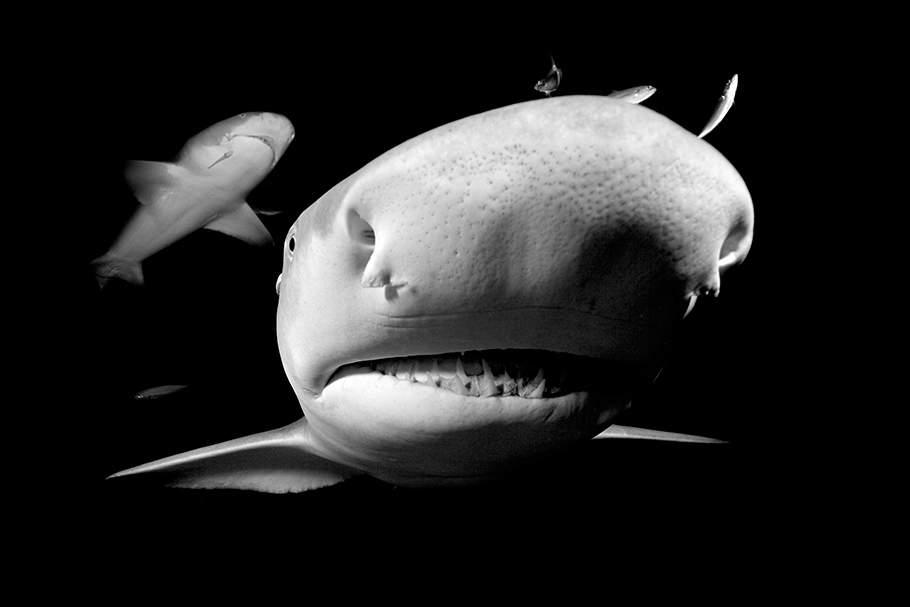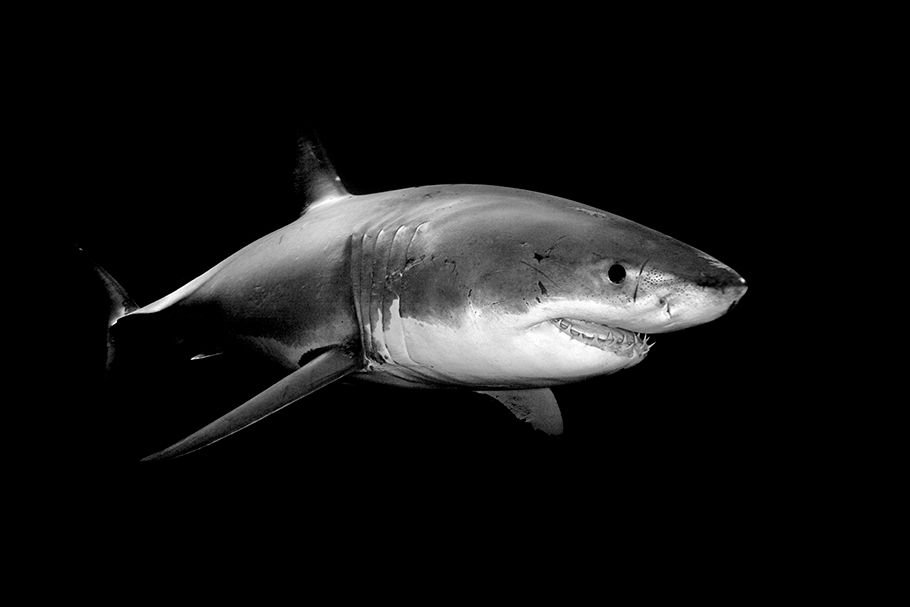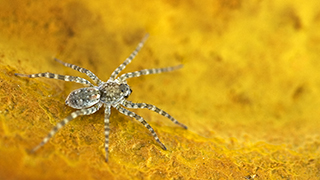News / 01 January, 2020
Galeophobia
Removing old myths
Human perception of sharks has been modeled by films. The use they do of our deepest and irrational frights, makes us feel under the influence of what is shown on the screen: cruelty, ruthlessly and insatiability.
Meanwhile, more and more divers are willing to have an encounter with one of these magnificent animals. The attraction is undeniable, to admire their elegance in swimming and their imposing presence. Emotions arise while having an encounter with these enigmatic animals: from the deepest fears to the greatest admiration, from panic to euphoria. There is no place for indifference, the human visitor to the oceans surrenders to the Lord of the Seas.
Sharks have been living in the oceans for the last 400 million years and have survived also to dinosaurs. An ancient heritage, coupled with exceptional design, evolution and marine technology, has made these super-predators what they are today: the reflection of all that Mother Nature can provide. Super-developed senses, careful design of hydrodynamic shapes, powerful bodies, super specialized skins….all gathered to develop the top-class in animal featuring.
“Sharks do make unprovoked strikes on humans
a few dozen times a year ”
Confused, we don’t know whether to feel fear or curiosity for these animals, and while we are wondering this, the real danger is for the sharks. More than 100 million sharks are killed every year and more than 25 % of the species are threatened with extinction.
Millions of people enjoy the ocean every year and only a few dozens are bitten by sharks. Less than 10 fatalities are recorded every year. The chance of dying from a shark attack is one in 11,5 millions, according to the University of Florida’s International Shark Attack File. Definitely, humans are not in the menu of sharks.
Despite their fearsome reputation as ruthless predators, sharks are much more likely to be killed by humans than the other way around.
The real question is not if they are dangerous or not, but if we are doing enough to know, to enjoy, and to preserve them.



